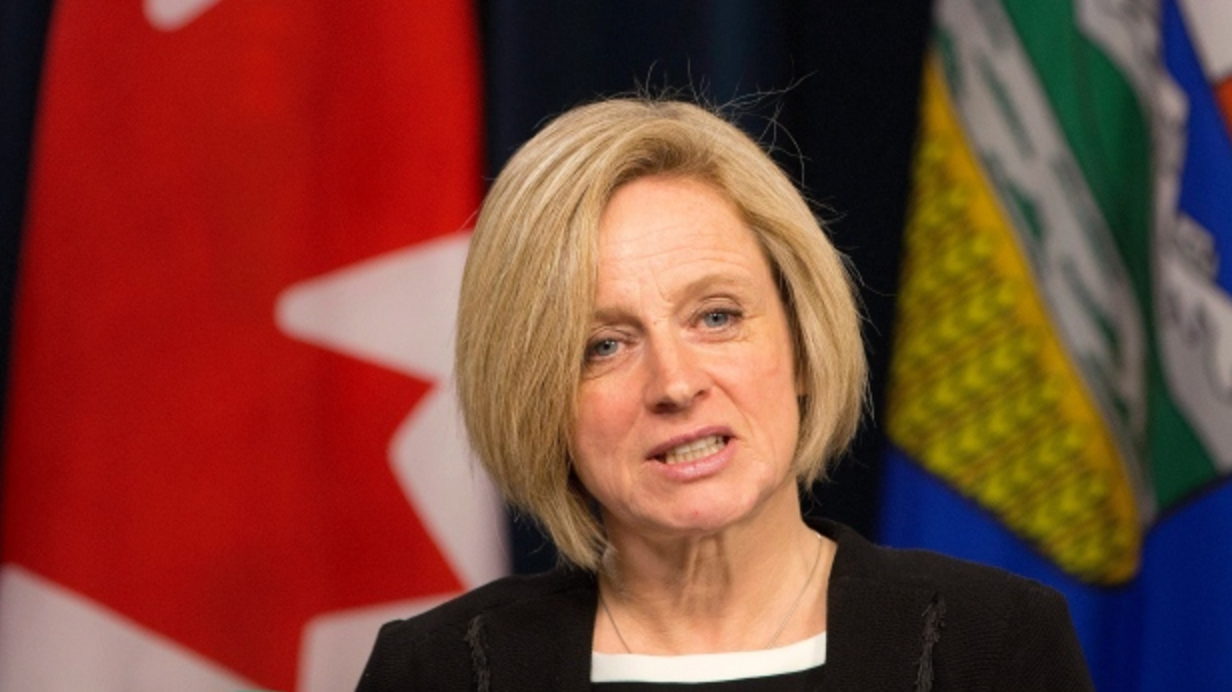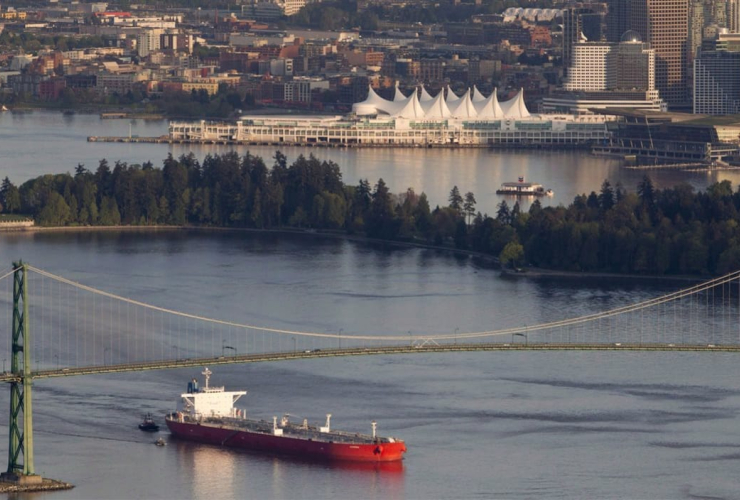Alberta Premier Rachel Notley has consistently repeated that the Trans Mountain pipeline expansion is worth “about $15 billion a year” — a figure her office says she picked up from a Scotiabank report released last February.
The Scotiabank figure has been discredited. The bank ignored how the industry actually works to develop its claim and Ms. Notley knows it.
Ms. Notley’s basis for asserting an economic benefit from the construction of Trans Mountain’s expansion rests on the premise that there is a lack of pipeline capacity available to deliver heavy oil to market, and this lack of capacity leads to a widening in the natural light-heavy price discount as measured by the spread in price between West Texas Intermediate (WTI) and Western Canadian Select (WCS). This widened WTI-WCS spread is then used as a proxy price applied to all barrels of heavy oil produced as if they were all exposed to spot market pricing.
Very few barrels of heavy oil produced are actually exposed to the light-heavy differential. Spot market barrels — those barrels not protected by contracts, sold into the refineries owned by producers, or barrels that make their way to the US Gulf Coast — are estimated at fewer than 400,000 a day. That's a far cry from 2.1 million barrels a day, which is the figure used to come up with the erroneous $15 billion.
It is a fact that a lack of pipeline takeaway capacity can impact the size of the discount price paid for heavy oil as compared to light, but pretending this in the only factor at play, as Ms. Notley does, is deliberately irresponsible. Many other forces, including supply and demand for heavy oil, refinery capacity available to process it, and seasonality, affect the price heavy oil will sell for in the market.
When a significant spike in the size of the discount occurred last November, it wasn’t lack of capacity that caused it, it was safety problems on Trans Canada’s Keystone pipeline. The pipeline sprung a leak and was shut down. Keystone delivers heavy oil under contract to U.S. markets. When the pipeline failed, barrels that were normally protected from exposure to short term pricing (as reflected in the WTI-WCS light-heavy differential) became stranded in Alberta. Once the industry adjusted and Keystone began shipping at pre-failure levels, normal spreads returned.
More recently, the light-heavy differential widened because Enbridge planned to impose supply verification procedures for its Mainline system. No change in actual capacity there, just the threat that producers would have to prove that the barrels they nominated for shipment on the pipeline actually exist. Then, earlier this week, the discount narrowed more than $10 a barrel because Enbridge cancelled the implementation of its new approach.
Shortly after adopting the $15 billion a year mantra last February, Ms. Notley issued her annual Budget: Alberta's 2018-21 Fiscal Plan.
If Ms. Notley’s claimed benefits from Trans Mountain’s expansion were credible, it would be reasonable to expect that her formal budget document would provide more insight into how the figure was developed. So I checked. It does not.
Instead, Ms. Notley’s Budget says the exact opposite of what she claims will come from Trans Mountain’s expansion. According to the Budget, Trans Mountain’s expansion will produce no benefit at all — that’s right, no benefit.
The Budget explains that the reason why Trans Mountain’s expansion will deliver no economic benefit to Alberta, or the rest of Canada, is because any potential pricing gain from increased pipeline capacity will be swamped by significant heavy oil pricing problems that are looming on the horizon.
In 2016, the International Maritime Organization (IMO) announced new regulations to reduce greenhouse gas emissions. It ruled that after January 1, 2020, marine vessels will be required to burn fuels with a sulphur content of no more than 0.5 per cent, reducing the current sulphur content cap by 3 per cent.
Alberta’s Budget clearly states that, “the light-heavy differential is forecast to remain wide as new rules on the sulphur content of marine fuels from the International Maritime Organization go into effect. This is expected to reduce demand for bunker fuel, which mainly comes from heavy oil, and reduce heavy oil prices.”
Alberta’s Budget identifies that the price impact of IMO 2020 will be about $8 US per barrel. What this means is that instead of the promised narrowing of differentials from Trans Mountain’s expansion, Alberta actually expects none.
Ms. Notley is deliberately misleading Albertans into a false belief about the importance of Trans Mountain’s expansion. The problem is that, at the very time Ms. Notley’s government should be focused on policies that direct its economy to safe harbour in the market chaos that is climate change, her contrived narrative on the importance of tidewater access is leading the Alberta economy into the perfect storm.
We don't want to know. It is
We don't want to know. It is that simple....and unfortunately, when it becomes that simple, catastrophe can't be far behind.
A depressing article, which if true, says things about the lengths politicians will go to be re elected, that most of us don't want to believe either. Thanks to Robyn Allan for continuing to speak.
Thank you Robyn. As long as
Thank you Robyn. As long as votes remain all important to most politicians I don't see corruption changing in my life time. Sad yes but I believe very true. Until there is a way of making them accountable for their actions/lies the same beat goes on.
The real reason for the
The real reason for the tripling of this pipeline is that royalties are so low in Alberta that the only gain from selling our resources at bargain basement prices relies on volume - more fracking and more oil sands exploitation. The opposite of where we should be going re: climate change, and the complete externalization of the costs of the pollution that follows.
Over and over and over again
Over and over and over again the rationales for expanding Trans Mountain pipeline capacity are shown to be lies. How do they keep getting away with it? And, if they know their rationales are lies, what is really behind it? The refusal to raise royalties, as suggested by Nielle Hawkwood, below? They are more frightened of the oil interests than of us citizens? I wish I knew.
Good explanation. Too bad
Good explanation. Too bad Justin did not have this information last month.
How can Trudeau not care or
How can Trudeau not care or be aware of this? Or if he is I don't really think this pipeline will be going anywhere but if not where is all the money going? So many people know the 15 mil is a "pipe dream'' and the number of people employed if it did go ahead even more so.
What are those trust fund babies planning?





Comments